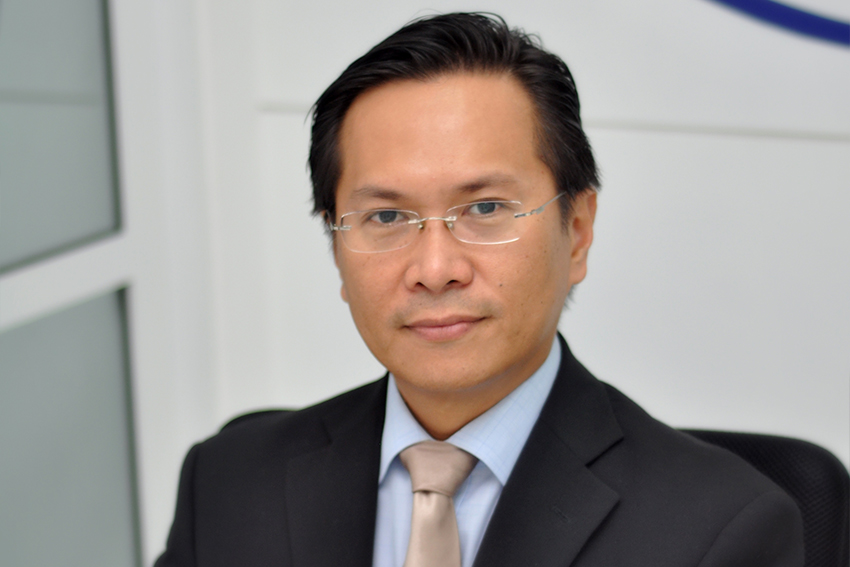Osman Jair, Managing Director of Insurans Islam TAIB in Brunei, discusses the potential opportunities for the insurance industry as a result of further ASEAN economic integration, and the characteristics of Takaful insurance, which is a type of Islamic insurance, where members contribute money into a pooling system in order to guarantee each other against loss or damage

The integration of ASEAN members, through the ASEAN Economic Community, potentially represents a huge opportunity of growth for many sectors of the economy. In the insurance side, an effort to standardize is being made by the ASEAN Insurance Council, which has produced a master plan to spur industry growth, along with the ASEAN Insurance Integration Framework. As Chairman of the Brunei Insurance Takaful Association (BITA), what potential opportunities do you see for Brunei Darussalam insurers?
The insurance industry in the region has been talking about it, and they felt uncertain because major players were coming into the market. I saw this as an opportunity, for the Brunei Insurance market to have the same global standard as other international players.
With the support of the Autoriti Monetari Brunei Darussalam (AMBD) and the implementation of new legislation, we managed to par with other markets. The ASEAN Insurance Council (AIC) meeting and the ASEAN Insurance Regulators Meeting (AIRM), has always been at the same time and venue. At the end of the meeting or the program, there would be a joint plenary meeting with the regulator, representing the members of the ASEAN Insurance Regulators Meeting (AIRM) on one side and AIC members on the other side.
That’s the opportunity that we hear among other markets. For Brunei, since the market is small, to have certain legislation or certain standards enforced on it may take a lot of time, however, time will not wait for us to be in the international market. We have to strive to be there. We cannot be complacent, sitting here, whereas, the rest of the world is catching up with the global standard. So, it’s an opportunity for us to be there in the international arena.
Brunei’s Takaful insurance sector has seen steady growth over recent years, grabbing market share of mass-market products, and steadily gaining share over conventional insurance providers. Can you explain some of the characteristics of Takaful insurance?
We were the disruptor when Takaful came into place back in 1993 in Brunei. Conventional insurance had already been there for more than 50 years, and it was the first time that local Bruneians worked for and engaged with the Takaful insurance industry.
Takaful offers different things from conventional insurance but if you look at the front you won’t see the difference. It’s more of a mutual or joint agreement between us, the company, and the participants. There’s a clause between us that we will provide compensation or assistance in case of any mishap that may happen to the participant. The participant also makes declaration what we call “akad”, to us as the manager of the fund, that he is willing to donate the contribution to help others as well. So it’s more of a mutual concept.
For Insurans Islam TAIB, we have been using the Mudharabah concept, which is a profit-sharing concept. The concept that we have been using since the beginning is giving back something, if there’s no claim being made by the participant. So, it’s a profit-sharing business.
We will issue Mudharabah percentages that we can share – that depends very much on the amount of contributions that we have for that product, the number of claims for that product, and also the investment, a profit that we had from the pool of funds of that product. So, you will get something.
It’s like a form of community spirit. You won’t ask the manager, “Why would I have to pay for him?” Because you already sort of donated that money in order to help each other. There’s really some beauty inside it in terms of social responsibility, helping one another.
Insurans Islam TAIB was established in 1993 and was the first financial institution in the country to offer “takaful”. Can you share some of the major milestones of Insurans Islam TAIB and how it has contributed to the development of the Brunei Darussalam insurance sector?
Insurans Islam TAIB is such an evolving organization. Around two years after the formation, Insurans Islam TAIB opened its door to the retail public so they accepted the participation from others especially motor vehicles coverage and then went for fire and housing Takaful. After that, we ventured into commercial.
We moved further in 2005 when we started to have special risk coverage; special risk and mega risk. By 2006, we were glad that we had worked with the Japanese companies; Mitsubishi, Itochu, and Petroleum Brunei with Brunei Methanol.
Even though our capital is not huge, we wanted to tap into the mega risk business to take an opportunity on that so that we can keep a very small percentage of that risk, so that we can learn. We are also listed by the brokers, the insurance brokers who handle a lot of business and had reinsurance with foreign countries. We ventured into that and there was a need for us to be rated. We wanted to rate ourselves; we wanted to know how strong we were financially so we had the top rating agency rating us. We were rated ‘BBB+ ‘by the year 2008 by Fitch Ratings so that we could accept more businesses.
0 COMMENTS